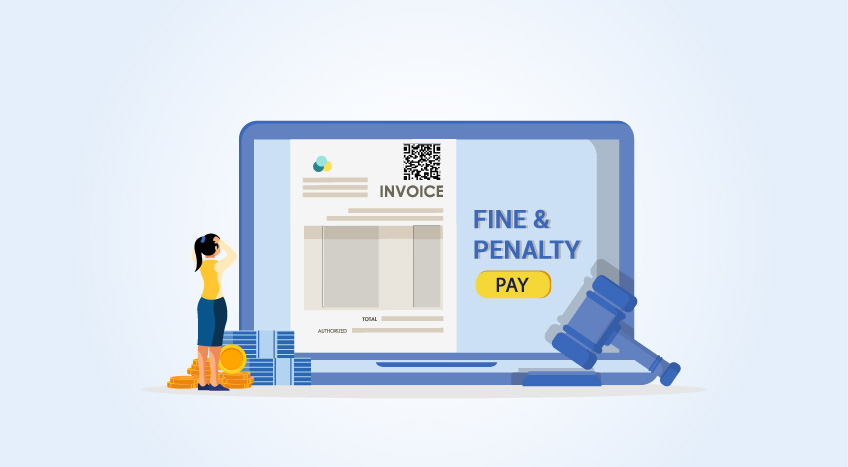Since the e-invoice standard is constantly evolving, it’s vital that businesses stay up-to-date with the latest changes.
The
obligations for companies to create and submit electronic invoices
(e-invoices) (e-invoices) for every tax-exempt supply is an important element of the GST. E-invoices are produced and distributed through a centralized gateway, referred to as the electronic invoice portal.
Failure to adhere to the standards for e-invoices has led to penalties being imposed from the federal government. These penalties can be very severe, and can have a serious impact for companies.
Different types of penalties for e-invoices
There are two major kinds of penalties for e-invoices:
Penalty for failing to generate an electronic invoice: This penalty will be imposed when a business fails to produce an e-invoice in connection with the supply that is tax deductible. The penalty is or 100 percent of the tax due on the sale or the amount of Rs. 10,000, which is more.
Penalty for a wrong e-invoice If an electronic invoice is made in a way that is not correct, the penalty will be assessed. It is in the amount of Rs. 25,000 per invoice.
The impact of penalties for e-invoices on companies
The e-invoicing penalty can affect businesses in many ways, such as:
Financial impact:
Penalties could be a major cost for companies especially small ones.
Reputational damage
Penalties can damage a business’s image, which makes it difficult to gain customers and partnerships.
Legal implications:
In certain situations, penalties could result in legal action against companies.
In business, disruptions in operations
The business operations could be affected due to the penalty as companies could require time correcting errors of their e-invoices.
ITC claims made by customers:
Customers who are unable claim their
Input Tax Credit
(ITC) due to the company’s inability to comply with e-invoicing, they could be facing financial problems due to the penalties. They could be required to pay more taxes and this could impact their profits. This can lead to delays in payments towards their vendors, thereby hindering their relationship.
To avoid penalties for e-invoicing companies must ensure that they adhere to the e-invoicing guidelines. This means creating invoices in time, ensuring that e-invoices are double checked to ensure they are correct, and using an effective e-invoice software.
Companies can help reduce the threat of e-invoicing penalty penalties and protect their reputation, financial health and operation by implementing these steps.
Strategies to avoid penalties associated with e-invoices
Companies can employ a range of methods to minimize the possibility of penalties for e-invoices. Here are a few of them:
Making e-invoices in time: Businesses should create electronic invoices as quickly as is possible after completing a tax-deductible supply. This will allow them to ensure that they comply to the regulations for e-invoices.
Reviewing invoices to ensure accuracy Prior to transferring e-invoices firms should review them thoroughly to ensure they are accurate. This can help in the prevention of penalties for incorrect invoices.
Use a trusted e-invoice system businesses should create and send e-invoices by using an established
Software for e-invoices
. This can assist companies in staying in compliance with the electronic invoice standards and avoid penalties.
Conclusion
The rules governing electronic invoices are complicated and the consequences of infractions are severe. Companies can reduce the chance of fines for e-invoices by preparing regular e-invoices, checking the accuracy of e-invoices and by utilizing a reliable electronic invoice system.
Alongside the methods mentioned above, companies can lessen the chance of penalties for e-invoices by:
Training their staff on electronic invoice requirements
In place a system to create and distribute electronic invoices
Monitoring their compliance with e-invoices regularly
Companies can assist in ensuring that they’re in line with the requirements for e-invoices and avoid fines by adopting these steps.
The government has an additional website dedicated to the e-invoice website that includes rules and guidelines. Tax experts as well as other professional service providers are also able to provide information about the requirements for e-invoices to companies.
Read More




